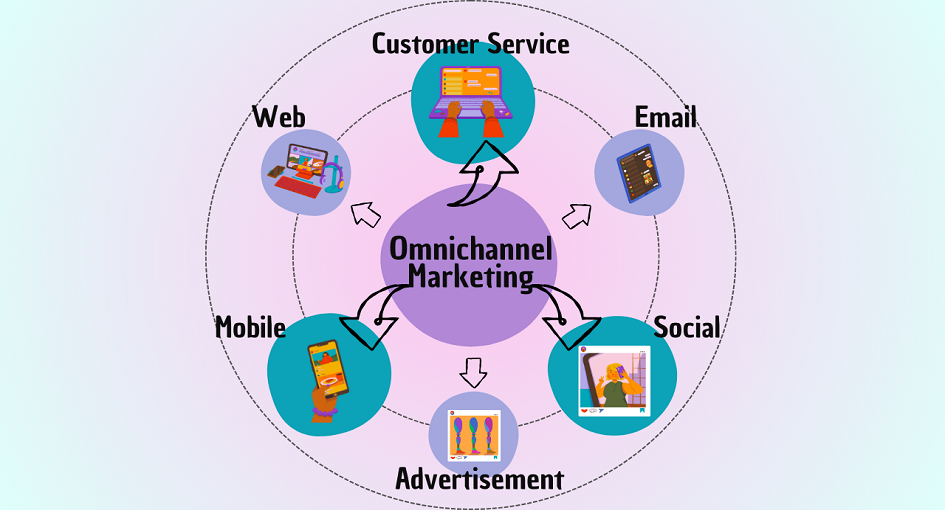
In today’s rapidly evolving digital landscape, businesses are redefining customer engagement by adopting advanced strategies to deliver seamless and interconnected experiences across various channels. This comprehensive article explores the dynamic world of omnichannel marketing.
Multichannel engagement is a strategy that involves interacting with customers across multiple platforms and channels to provide a consistent and integrated experience.
Understanding how customers prefer to engage with your brand is crucial. Some may prefer email, while others may prefer social media or chat.
Businesses must have a strong presence on various digital platforms, including websites, social media, mobile apps, and messaging apps, to meet customers where they are.
Personalization is key to Multichannel Engagement. Tailor your messages, content, and offers based on customer behavior and preferences.
Maintain a consistent brand image and message across all channels to avoid confusing customers and reinforce your brand identity.
Customers expect immediate responses. Be prepared to engage with customers in real-time across all channels to provide timely assistance and support.
Leverage data analytics to gain insights into customer behavior and preferences. Use this data to refine your multichannel engagement strategy.
Design customer journeys that seamlessly transition from one channel to another. For example, customers should be able to start a conversation on your website and continue it on your mobile app.
Optimize content for each channel. What works on social media may not work in email. Tailor your content to suit the platform.
Ensure that all digital assets, including websites and emails, are mobile-responsive. Many customers access content on mobile devices.
Leverage artificial intelligence and automation tools to streamline multichannel engagement. Chatbots and AI-driven recommendations can enhance customer experiences.
Track key performance indicators (KPIs) for each channel and campaign. This data will help you understand what’s working and where improvements are needed.
Use customer feedback from various channels to continuously improve your products, services, and overall customer experience.
Multichannel engagement is crucial during crisis situations. Use all available channels to provide updates, support, and guidance during emergencies.
Leverage data to offer personalized product or content recommendations to customers across all channels.
Ensure that the interfaces on all channels are user-friendly and intuitive. Customers should be able to navigate easily.
Integrate your multichannel engagement strategy with customer relationship management (CRM) systems to track and manage interactions effectively.
Train your team to manage and coordinate multichannel engagement effectively. Encourage collaboration between departments to ensure consistency.
Adhere to data privacy regulations and security standards to protect customer information across all channels.
Stay updated with emerging technologies and trends in multichannel engagement, such as augmented reality (AR), virtual reality (VR), and voice-activated assistants.
If your business operates internationally, Omnichannel marketing consider creating localized content and engagement strategies for different regions and cultures.
Create online communities or forums where customers can engage with each other and with your brand. This fosters a sense of belonging and customer loyalty.
Explore partnerships with other businesses or omnichannel marketing platforms to expand your multichannel reach and provide additional value to customers.
Ensure that all digital content and channels are accessible to individuals with disabilities, complying with accessibility standards.
Multichannel engagement is an ever-evolving field. Stay innovative and open to new technologies and strategies to meet evolving customer expectations.
In conclusion, omnichannel marketing is not just a strategy; it’s a necessity in today’s digitally connected world. By seamlessly connecting with customers across various channels and providing consistent, personalized experiences, businesses can build strong customer relationships, drive growth, and stay ahead in the competitive landscape. Multichannel engagement is about meeting customers where they are and delivering value at every touchpoint, ultimately shaping a future where customers are at the center of every interaction.